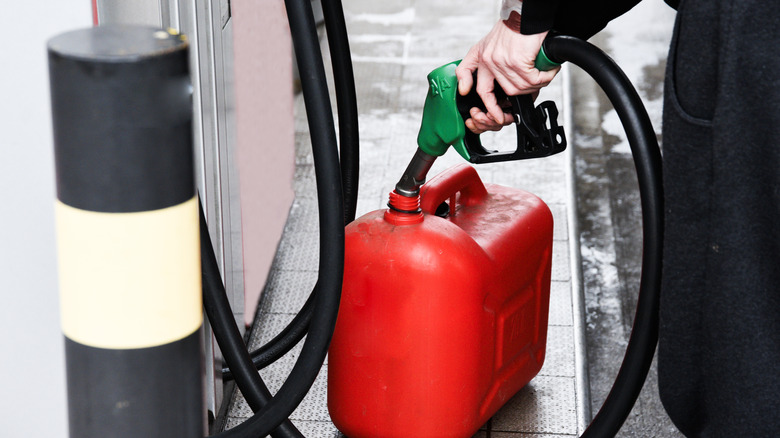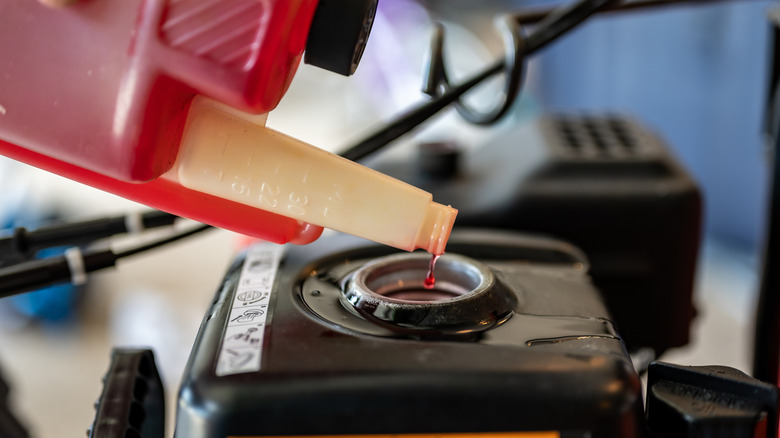How To Choose The Right Gas For Your Lawn Mower
You might always remember to perform the lawn mower maintenance tasks you should be doing after every mow to keep the machine in top operating condition, increase its longevity, and reduce the possibility of needing repairs. However, even if you never miss a maintenance task, you still might be making a key mistake that will negatively impact your lawn mower's performance and longevity.
Choosing the right fuel for your lawn mower ensures the best possible performance from it. The wrong fuel can place excess moisture in the gas tank, which clogs fuel lines, pumps, and filters. The mower might not run properly and may require expensive repairs.
How do you know exactly what kind of fuel you can use with your lawn mower? Always check the owner's manual for your machine, where you'll see a list of approved fuels and other types of gas that you should avoid. You can also visit the website for the lawn mower manufacturer and model you own, and it may list the types of fuel that you should use. Some mowers will list the types of gasoline you should (or should not) use on a sticker near the gas tank or imprinted on the gas cap. Learn more about the different kinds of fuel you should select for most mowers and when to pay attention to unusual situations with the fuel you use.
Most common types of fuel to use with typical lawn mowers
According to a recent study, about half of outdoor power equipment owners in the United States don't pay attention to the type of fuel they use or are unsure about which fuel to use. If you're unsure what type of gasoline to use in your mower and can't find detailed information, the best advice is to look for ethanol-free gasoline, also known as E0. When ethanol is added to fuel, it reduces the amount of oil in the fuel, which limits the lubricative properties of the fuel. Ethanol also absorbs water the longer it sits in the fuel tank, which can lead to poor lawn mower engine performance over time.
Some estimates place the number of filling stations that sell E0 at less than 5% of all stations in the United States. Federal legislation requires ethanol additives in fuel for motor vehicles, meaning it's more difficult for gas stations to find refineries that will sell them ethanol-free products. A few websites maintain a list of gas stations that sell E0 fuel, which you can search by location. Gas stations will usually have signs that indicate whether specific gas pumps offer ethanol-free gas.
However, if you simply have no choice but to use ethanol-blended fuel in your mower, understand that most outdoor power equipment engines are not manufactured to operate with gasoline that contains more than 10% ethanol (which is E10 gasoline). Avoid using E15 or blends with more ethanol than E10. If the ethanol blends are confusing, look for unleaded products with an octane rating of 87.
Fuel you should probably avoid when running your lawn mower
One mistake homeowners make when selecting gasoline for their mowers is thinking that more expensive fuel is going to be better for their outdoor power equipment. However, what happens if you use premium gas in a lawn mower? Premium fuel helps automobile engines designed to use it to generate more power and overall performance, but premium offers no benefits to a lawn mower for better engine performance. Mower engines are designed to use gasoline with an 87-octane rating. Premium fuel usually has an octane rating of 91 or higher. You'll just be wasting money by putting premium in a lawn mower, as premium fuel averages about $0.50 more per gallon than regular.
You should also avoid using stale fuel in the lawn mower. The long-term effects of using old gasoline in your mower include causing clogs in fuel filters and valves in the engine. The old gas begins to evaporate after several weeks, leaving a gummy substance behind that acts almost like varnish and will force you to clean the carburetor. Old fuel can also cause a sputtering engine, affecting lawn mower performance. As long as you store it in an approved gas can, it should remain in good quality for at least six months. You can also use a fuel additive or stabilizer product to extend the lifespan of stored gasoline. You can add the stabilizer directly to the gas can. Fuel inside the mower's gas tank may degrade in about 30 days, so it's a good idea to add stabilizer to the tank as well.


